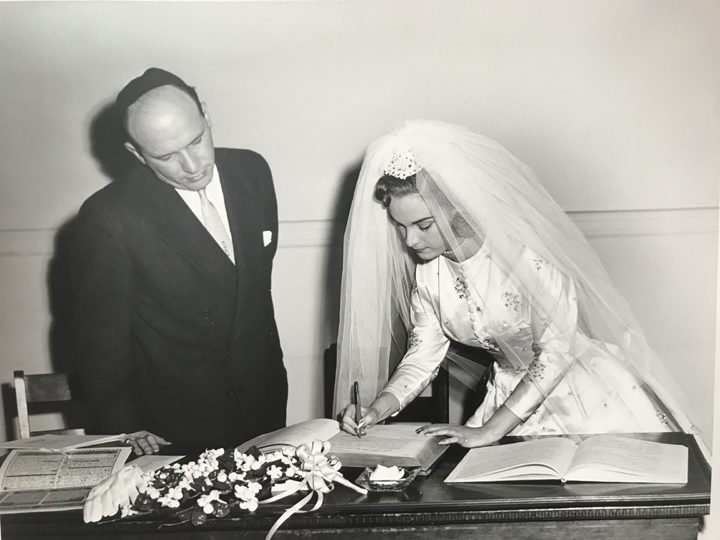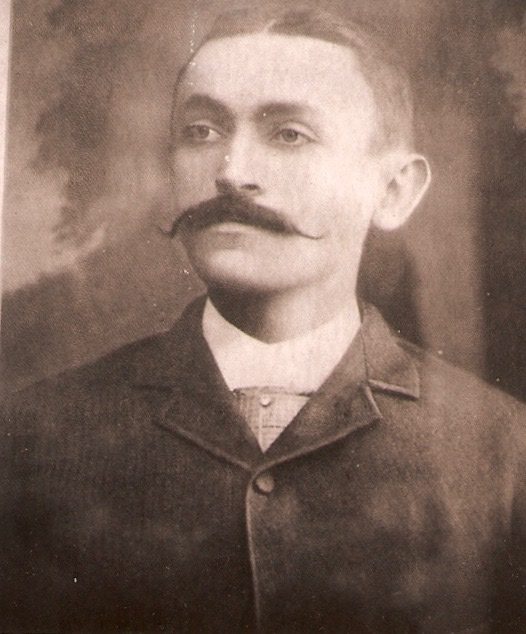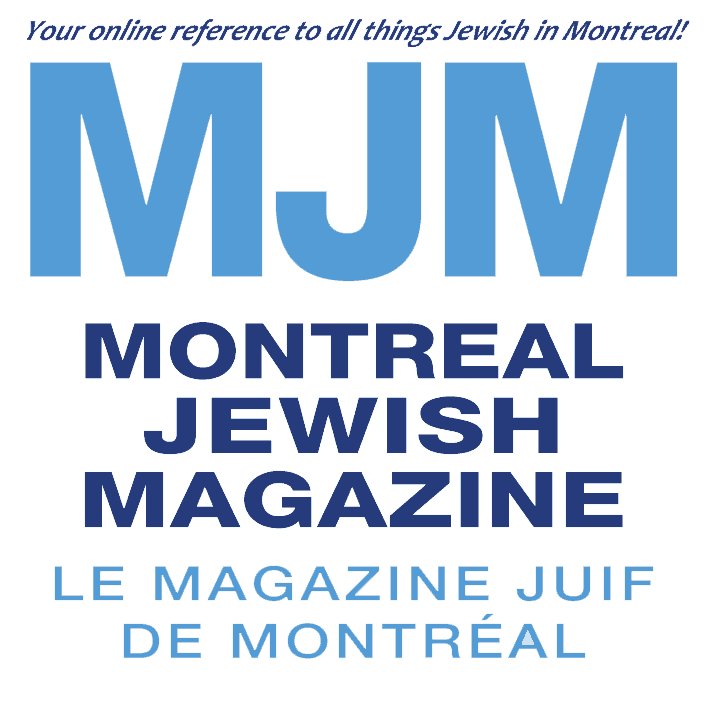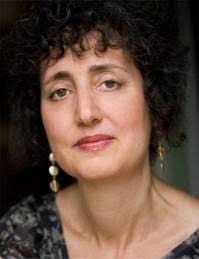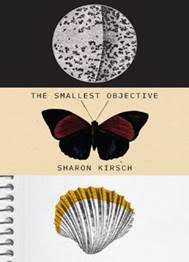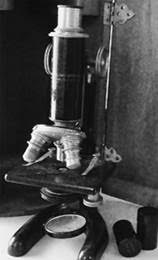Who doesn’t want to know what’s hidden under their floorboards… ?
Kirsch’s new book is both topical and universal. As the author dismantles her parents’ home in Montreal while preparing it for sale, she happens upon objects hidden there—a treasure cache reveal of 20th century family members she never knew, their fates bound up with the history of the city itself. Honouring the complex fabric and history of a Jewish community, The Smallest Objective is an intricate literary memoir about what the past can bring in the face of a difficult present. Included are black-and-white photographs highlighting some of the articles that spoke to Kirsch, disclosing her past.
Please click to see an excerpt read by the author
Click to read an excerpt from The Smallest Objective
Book traces author’s past while highlighting mid-century Montréal
“Make it a habit at the outset to keep both eyes open.”—Manipulation of the Microscope, Edward Bausch
The Smallest Objective
Compelling narrative nonfiction by Sharon Kirsch
Virtual Book Launch November 24
In conversation with arts reporter Jeanette Kelly
Please click to see an excerpt read by the author
“Many Yiddish-speaking artists and intellectuals from the Old World settled in Montreal and were joined by large numbers of Yiddish-speaking refugees, distinguishing the city as an international centre for Yiddish cultural life. My parents, both Canadian born, never imagined living anywhere else than Montreal, a city of opaque greystone nunneries and shimmering tin spires.” —The Smallest Objective
New Star Books is delighted to announce The Smallest Objective. The emotional and physical impetus for Montreal author Sharon Kirsch’s newest book stems from a sequence of loss, and recovery. Here it is grief for her mother’s waning independence, and the act of reclaiming family stories. Entrusted with her mother’s move to an assisted-living facility after fifty years in the same home, it is Kirsch’s responsibility to sort out the accumulation of family mementos. Most immediately pressing is the solution to an old family mystery: what is her father supposed to have concealed beneath her parents’ bedroom floor? She undertakes an excavation for buried treasure in her now-vacant family home, aided by a team of archeologists. The book includes black-and-white photographs of the objects that spoke to Kirsch, disclosing her past.
The Smallest Objective unfurls in the course of the author’s sorting through the memorabilia accumulated over half a century in her childhood home. In this literary memoir, Kirsch celebrates the complex fabric and history of Montreal’s Jewish community, not least the escapades and legacy of her own family. This includes her paternal grandfather, a child immigrant from Russia who beat the odds to become one of the first Jewish faculty members at McGill University, as well as a community leader key to such enduring institutions as the Jewish General Hospital, Mount Sinai Sanatorium and Camp B’nai Brith. Kirsch’s great uncle was the notorious Jockey Fleming (born Moses Rutenberg); a raconteur embraced by politicians and the hockey elite alike, a near-criminal known to the RCMP, and one of mid-century Montreal’s most vivid and talked-about denizens. Carol, the author’s young aunt, was an exuberant second generation Jewish Montrealer who came of age in the lead-up to Expo 67 when opportunities for both women and Jewish people had rarely been better.
Grappling with her mother’s failing memory and move to assisted living, the author discovers these personalities as she dismantles the family home—where her father claimed to have hidden something of value under the floorboards. In what begins with a hunt for buried treasure, the riches of Jewish Montreal over the decades aren’t merely excavated, but illuminated in their full brilliance for all to see.
At the heart of Jewish Book Month is the perpetuating of traditions and memories central to the Jewish experience. The theme of remembrance is foremost in Kirsch’s book as well, both at the collective and personal levels. Unexpected secrets and taboos come into focus and a layered legacy of willed forgetfulness is uncovered. “My experience as a teenager in vibrant 1970s Montreal, along with the stories of family members that I knew or only heard about, offers a vantage point on the city’s Jewish community and Jewish immigration to North America that encompasses contrasting genders and professions, different eras, and myriad ways of life,” said Kirsch.
This first-person creative narrative produces unsettling discoveries as revealed by the things that survive their owners—a microscope (the book title refers to the lens of a microscope that allows for the highest degree of magnification), a postcard from Mexico, a worn recipe book, a nugget of fool’s gold, an envelope of yellowing newspaper clippings and an obituary. In the end, packing and unpacking, the search yields both less and more than the author ever imagined about this unique family, as well as the extent to which they were punctured and shaped by the muffled anti-Semitism of the time.
“The reasons underlying my grandfather Simon Kirsch’s departure from his position at McGill University, in 1925 at aged forty, were complex and as I understood from the little my father told me, voluntary. Already in 1919, the president of Queen’s University was bragging about how the faculty included only five Jews, a necessary restriction since they “lowered the tone”. By 1931, Jewish faculty in the whole of Canada numbered eleven, of which only five worked in Quebec.”—The Smallest Objective
New Star Books Publisher Rolf Maurer was riveted by Kirsch’s depth of discovery, “This is a book about the Kirsch family, but it is foremost a book about the events and attitudes of the day that distorted both her grandfather’s and her great-uncle’s lives, as well as the darker and more tragic aspects of people’s existence. As with any great memoir, the real gold is in the stories that the narrator encounters in settling her own account,” he said. For further insights into Kirsch’s story, check out her blog and Facebook page.
The Smallest Objective is an intricate memoir about the treasures that the past can bring in the face of a difficult present. This is an ideal time to read a book and be transported; reflecting on parents and extended family.
Praise for The Smallest Objective
From The Miramichi Reader: “In this particularly well-crafted memoir, author Sharon Kirsch shares her experience of exploration, healing and loss… the astute observation of a writer in her prime.”
From Winnipeg Free Press: “As in her earlier book, this new memoir is based on impeccable research, and the prose is equal parts unsentimental, edifying and engaging.”
Insightful interviews with Sharon Kirsch: montreal.ctvnews.ca/video?clipId=2040111; jewishbooks.blogspot.com/2020/05/guest-post-smallest-objective.html
Click to read an excerpt from The Smallest Objective
The Smallest Objective by Sharon Kirsch
ISBN: 9781554201556 | 272 pages | $22
The Smallest Objective is available in bookstores, and as an eBook at Amazon & Kobo among others, signed copies available at Paragraphe Books
